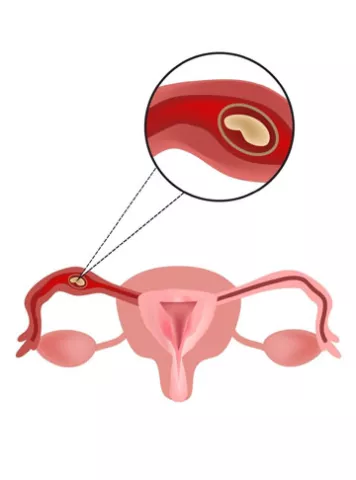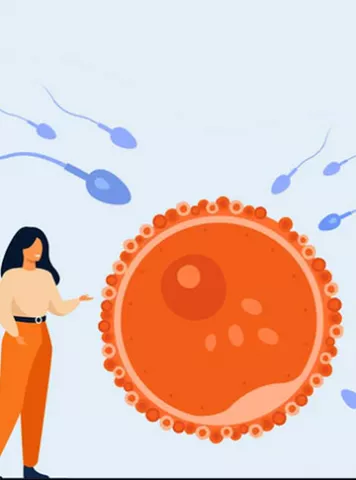The word embryo comes from embryon derives from Latin embryo and from Greek (embruon) means. “young one”
Approximately before 50 years in IVF, one or two embryos were targeted. Today with the advent of various advancements in IVF we are able to produce supernumerary embryos in an IVF cycle. The Policy of one, two or maximum three embryo transfer at a time has given birth to a new dilemma to the patients i.e. to decide the fate of remaining unused embryos after IVF.
Infertile couple should be explained about all the potential options, details and implications of making a decision signing the consent/approval form available for supernumerary embryos and help them in making an informed decision and consent for same.
1) Freezing or Cryopreservation of embryos-
Freezing is the process of preserving the embryo at sub- zero temperatures at pre implantation stage that is from fertilization to blastocyst stage that is day 5 of fertilization. Though freezing can be done at any stage of development of embryo, advanced clinics prefer freezing of blastocyst.
Medically lifespan of frozen embryo is unknown; embryos can be frozen for years together. Many studies have concluded that freezing procedure, duration of freezing and thawing has no significant effect on rate of implantation, miscarriage, and clinical pregnancy and live birth rates.
Frozen embryo transfer policy followed by many clinics has increased the success rates following IVF and has reduced the chances of complications like ovarian hyper stimulation syndrome; freezing of supernumerary embryos can give a sense of assurance to the infertile couple till they successfully complete the family.
Once the couple has successfully completed the family following treatment they can choose to continue the cryopreservation of embryos. In India, Assisted reproduction technique Bill 2017 proposes a maximum storage period of 5 years for cryopreservation of embryos.
2) Donate the embryos to other infertile couple
With the informed consent of the couple infertility clinic can use unused embryos from IVF for other infertile couple who are in need of embryos, commonly known as Embryo donation. The donating couple should understand that in India embryo donation is a closed donation process and hence they are not entitled to have any knowledge and legal right over the children born from their embryos.
3) Donate the embryos for research and training purpose
A noble option which can be considered by couples who are unable to give consent for Embryo Donation. It is believed that research on human embryo especially in the field of stem cell research has great possibilities of development of therapies for certain un curable medical conditions and hence can help in lengthening and improving the quality of life of people in need.
Research and training on human embryo can help in getting new breakthrough in the field of assisted reproductive technology and improvise the chances of other infertile couple in reaching their reproductive goals.
4) Discard the embryos or discontinuation of freezing
With the informed consent of couple, infertility clinics can thaw and discard the embryos.
With prior consent of couple, in unforeseen circumstances of one partner the embryos can be handed over to other partner and commissioning partner, embryos can be left to perish, can be donated to other infertile couple or used for research purpose.
Articles
2023


Guide to infertility treatments IVF
एक्टोपिक प्रेगनेंसी के लक्षण, कारण और इलाज
प्रेगनेंसी की खबर महिला को का�...
2023


IVF Guide to infertility treatments
टेस्ट ट्यूब बेबी का खर्च कितना आता है (What is the test tube baby cost in hindi)
पिछले कुछ वर्षों में टेस्ट ट्�...
2023


What Causes High Estrogen in Women
Estrogen is a very important hormone in a female’s body. It is especially ne...
2023


How early can a pregnancy be detected in IVF?
The happy news of pregnancy arrives after the successful completion of the fer...
2022


Guide to infertility treatments IVF
थाइरायड असंतुलन के कारण हो सकती है निःसंतानता, आईवीएफ से कैसे हो सकता है।
पिछले कुछ वर्षों में थायराइड �...
2022


पुरूष निःसंतानता का एक कारण वेरिकोसिल आधुनिक तकनीकों से संभव है पिता बनना
पुरूष निःसंतानता शब्द कुछ सा�...


गर्भधारण के लिए कितनी होनी चाहिए शुक्राणुओं की संख्या
निःसंतानता एक ऐसी समस्या बनत�...
2022


आईवीएफ क्या है (IVF Kya Hai) डिटेल में जानिए, आईवीएफ में कैसे होता है गर्भधारण
समय के साथ हमारी प्राथमिकताओ�...
Pregnancy Calculator Tools for Confident and Stress-Free Pregnancy Planning
Get quick understanding of your fertility cycle and accordingly make a schedule to track it
















